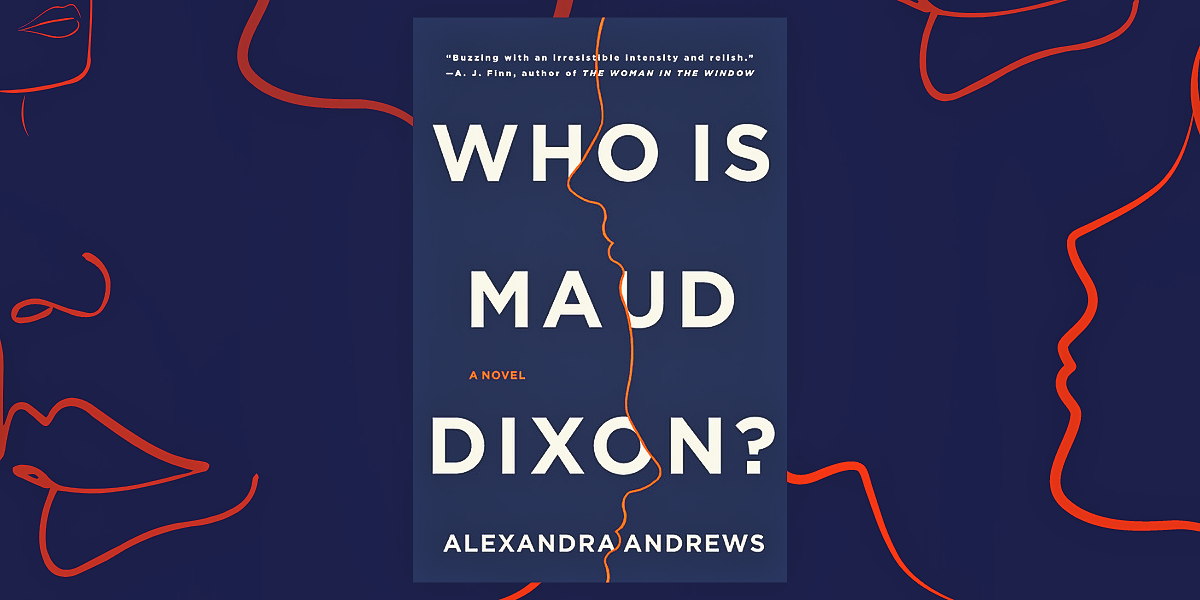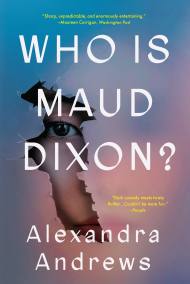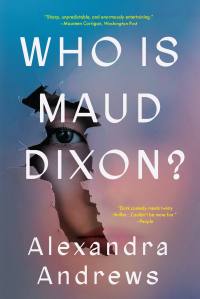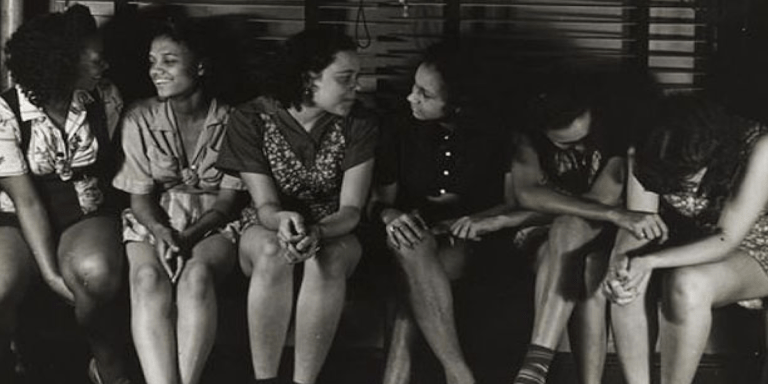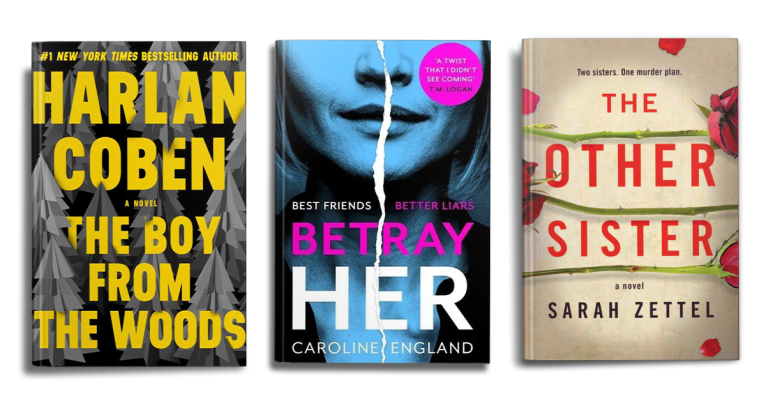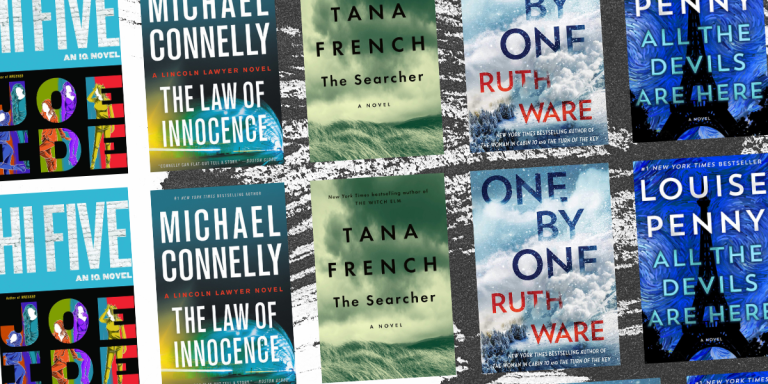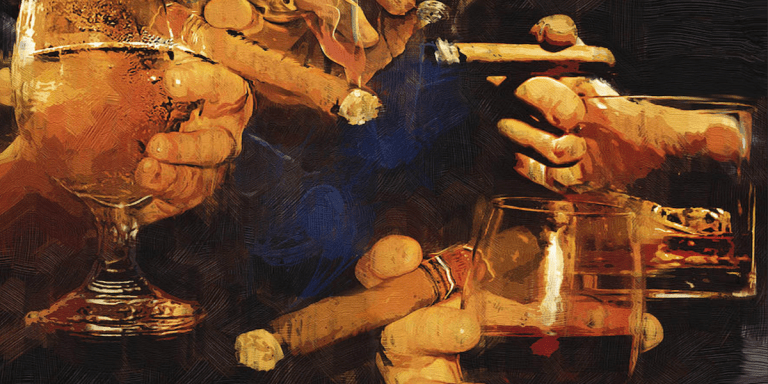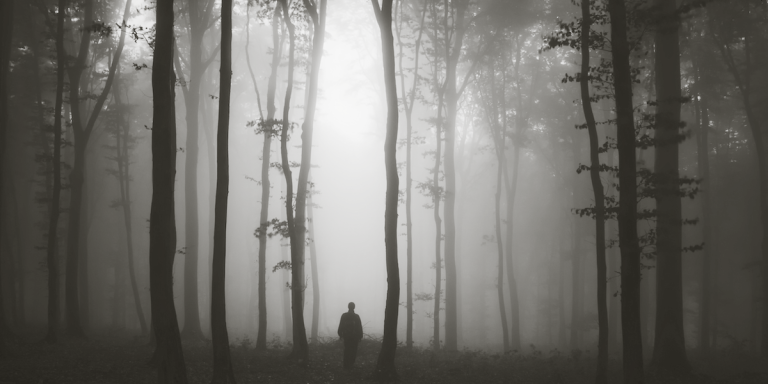Read The Excerpt: Who is Maud Dixon? by Alexandra Andrews
Preface
Semat, Morocco
Madame Weel-cock?”
Her left eyelid wrenched open, and warm yellow light flooded into the crack. Her vision was crossed by a blurred fig¬ure in white. She shut her eye.
“Madame Weel-cock?”
A shrill beeping sounded from somewhere. She forced both eyes open this time. She was lying in an uncomfortable bed flanked by two dirty curtains.
“Madame Weel-cock?”
She turned her head stiffly. A man in what looked like a military uniform sat in a chair pulled up to the bed, leaning forward onto his thighs and watching her intently. His face had the puffed, plastic curves of a baby doll. He was not smiling.
“Madame Weel-cock,” he said for the fourth time.
“Helen?” she asked in a patchy voice.
“Helen.” He nodded. “Do you know where you are?”
She looked around. “Hospital?”
“That’s right. You had the big night.”
“The big night?”
“The very big night.”
She let out a small, involuntary laugh. The man frowned, visibly annoyed. Then the curtain on her left swished open. They both turned their heads. A woman in a white headscarf and white jacket stepped through. A nurse? She leaned over the bed and smiled warmly. She said something in a foreign language and smoothed out the thin blanket.
Then she turned to the man at the bedside and said something to him in a sharper tone. He stood up, holding out his palms in appeasement. He smiled coldly and pushed the curtain aside. He was gone.
The young woman in the bed turned to the nurse, but she too was leaving.
“Wait,” she called hoarsely. The nurse either didn’t hear her or didn’t heed her.
She was alone.
Her gaze settled on the ceiling. It was mottled with brown water spots. She tried to push herself up to a sitting position but found herself hindered by a cast on her left wrist. That’s when she noticed that she was in pain. Everywhere.
She looked back at the empty chair the man had sat in. He had called her Madame Weel-cock. The information seemed significant, but she couldn’t place it within any meaningful context. She shut her eyes again.
A few moments later — or perhaps it had been hours — the curtain opened again. The nurse had returned with a different man.
“Madame Wilcox,” he said. “I am glad you are awake.” He spoke English with more precision than most native speakers, each syllable demarcated crisply from the next. “I am Dr. Tazi. I was on call when you arrived last night with two fractured ribs, a broken wrist, and hematomas across your face and torso. I was told you had been in a car accident. We often see injuries like these caused by airbags. You are lucky they are not worse.”
The nurse, as if waiting for her cue, presented a Dixie cup of water and a white pill the size of a molar.
“Hydrocodone. For the pain,” the doctor said. “I will return this afternoon to assess your condition, but I do not foresee any reason to keep you past tomorrow. Until then you should rest, Madame Wilcox.” He left, trailing the white-robed nurse behind him like a veil.
Madame Wilcox. She mouthed the name silently. Helen.
Then the light withdrew and sleep descended.
Chapter 1
Two young women climbed a narrow set of stairs toward the sound of laughter and music. Florence Darrow, in front, dragged her hand along the blood-red wall.
“There’s something perverse about throwing publishing parties here,” she said.
Both women worked as editorial assistants at Forrester Books, and tonight was the office holiday party, held every year on the second floor of a dark bar called The Library, where the theme was literary kitsch.
“It’s like having a United Nations summit at EPCOT.”
“Totally,” agreed Lucy Gund in a small voice. Her dress had hitched up on her tights during the climb, and now it was bunched around her thighs.
They reached the top of the stairs and stepped in to survey the scene. The party had started only half an hour earlier, but already a noisy din rose from the crowd and hung above it like smog. Nearly a hundred people — some who worked with them, many who didn’t — clustered in tightly packed groups. Florence hadn’t wanted to get there too early, but she wished they had arrived in time to stake out a corner for themselves. The girls scanned the room, looking for familiar and approachable faces. They found none.
“Drink first?” Florence suggested. Lucy nodded.
The two women had started at Forrester at the same time, nearly two years ago, and Lucy had immediately granted Flor¬ence her unconditional loyalty.
On paper, Lucy was just the type of friend Florence had hoped to make in New York. Lucy had grown up in Amherst, where both her parents taught in the college’s English department. Her father had written the definitive biography of Nathaniel Hawthorne. Florence had spent her first Thanksgiving with them after moving to the city; she’d been delighted to find that their old, book-filled house lay just down the road from Emily Dickinson’s. It was the type of intellectual idyll Florence had always wished she’d grown up in herself. It was everything her mother’s cramped apartment in Port Orange was not.
In practice, however, Lucy lacked the confident sophistication that Florence assumed would be the natural inheritance of a childhood like that. She was painstakingly shy, and Florence sometimes suspected that Lucy’s mother had told her to find just one friend in New York and she’d be fine. Florence had been the first person Lucy met at Forrester.
They had never really been incorporated into the company’s larger social scene, mainly because Lucy hadn’t tried and Flor¬ence hadn’t succeeded. Since Florence had also cut off contact with her old friends from Florida — she thought of her past as a gangrenous limb that needed to be severed for the greater good — Lucy was, for all intents and purposes, her only friend.
They wormed their way through the crowd, past a long table piled with grapes and cheeses, toward an imposing mahogany bar in the back. A bartender in a black satin vest smiled at some point just above their heads. They did not, apparently, meet the qualifications for his undivided attention. Lucy was used to being overlooked — in fact seemed to prefer it — but Florence had had just enough success with men to be disappointed when her charms went unnoticed.
Florence was not unattractive, but without exception the first thing anyone noticed about her was her pallor. She looked like someone who had grown up in a bunker rather than the Florida sunshine. Evidence that she had been born in the wrong place, she often thought with satisfaction. Her fair skin flushed easily, whether with shyness or fervor was never quite clear, as if her creator had been torn between the competing impulses of purity and perversion. Some men found this effect entrancing, but many were put off. She also had dark, nearly black eyes and dirty blond curls that sprang from her head like Medusa’s. Despite the hundreds of dollars her mother had spent over the years on gels, sprays, and holding creams, Florence still had not learned how to tame them.
“What’ll it be, ladies?” the bartender asked in a practiced tone. The light glinted off the stiffened spikes of his hair. Florence imagined crunching them under her fingers like frost-covered grass.
Lucy pointed to a placard advertising the specialty cocktail. “I’ll try the Dewar’s Decimal System, I guess.”
Florence ordered a red wine.
“I’ve got Cabernet or Pinot.”
“Either,” she said in a tone she hoped sounded breezy. She knew nothing about wine.
They each took a sip, then set off to find a group with breachable borders. They spotted some other assistants huddled by the food table and joined the fringes. A junior editor named Amanda Lincoln was arguing showily with a tall, lanky twenty-something in a tan corduroy suit.
“There’s literally no way, you fucking misogynist,” Amanda said.
Gretchen, a perky assistant whose desk faced Florence’s, turned to explain, “Fritz claims he knows for a fact that Maud Dixon is a man.”
“No,” whispered Lucy, drawing her hand up to her mouth.
Maud Dixon was the pen name of a writer who’d published a spectacularly successful debut novel a couple of years earlier called Mississippi Foxtrot. It was about two teenage girls, Maud and Ruby, desperate to escape their tiny hometown of Collyer Springs, Mississippi. They are thwarted at every turn by their age, their gender, their poverty, and the cold indifference of their families. Everything comes to a head when Maud kills a contractor traveling through town on his way to a job in Memphis. He had made the mistake of setting his sights on sixteen-year-old Ruby and refusing to look away.
The murder ultimately releases both girls from the clutches of their hometown. One ends up in prison; the other lands a scholarship to Ole Miss.
Critics had remarked upon the sharp, unsentimental prose and the freshness of the perspective, which caught the attention of the literary crowd, but the book didn’t really take off until a famous Hollywood actress chose it for her book club. Whether by prescience or by luck, the novel had appeared at the height of the #MeToo movement and perfectly captured the strain of righteous, brutal anger in the air. Whatever happened the night young Maud Dixon stabbed Frank Dillard — an undeniably menacing, lecherous figure — behind the Driftwood Tavern, you couldn’t quite bring yourself to blame her for it.
The book had sold more than three million copies in the U.S. alone, and there was a mini-series in production. Curiously, its author, Maud Dixon, was a cipher. She did no interviews, no book tours, no publicity whatsoever. There wasn’t even an acknowledgments page in the book.
The novel’s publishing house — one of Forrester’s competitors — admitted that “Maud Dixon” was a pen name, and that the author preferred to remain anonymous. Natu¬rally, this set off immediate and rampant speculation about her identity. “Who is Maud Dixon?” was the question asked in countless magazine articles, online forums, and publishing lunches all over town.
The two known Maud Dixons in America had been duly tracked down and ruled out. One lived in a nursing home in Chicago and couldn’t remember the names of her own children. The other was a dental hygienist who’d grown up in a middle-class town on Long Island and by all accounts had never shown any talent for or proclivity toward writing.
Many people assumed the story was autobiographical since the author and the narrator shared a name. A few amateur sleuths had identified crimes that shared certain markers with the one in the book, but none matched closely enough to be a smoking gun. Besides, Mississippi sealed the court records of juvenile offenders when they turned twenty. The town of Collyer Springs didn’t even exist. The investigation stalled there.
In general, Florence tended to look down on books that owed their success to the dramatic machinations of plot. Murder, in her eyes, was cheap currency. But when she’d read Mississippi Foxtrot she’d been astounded. The murder wasn’t a technical ploy to up the stakes; it was the novel’s raison d’être. The reader could feel the author’s urgency; the murderer’s absolute imperative; even the satisfaction of the knife going in.
Florence could still recite the passage:
The knife slipped in easily, a sharp-edged interloper among the warm, feminine folds of Frank’s insides. She raised the knife again. This time, it hit a rib and shuddered violently. Her hand slipped off the handle and slapped the soft pale flesh. His stomach was coated in blood now, the coarse, dark hairs slicked down like a newborn’s scalp.
The voice was like nothing Florence had ever read before: sharp and savage, almost violent. Ultimately, she didn’t care whether Maud Dixon was a man or a woman. She knew that whoever she was, she was an outsider, like Florence herself.
“Why are you getting so worked up about this?” Fritz asked Amanda. “Jesus, I’m not saying women can’t write. I’m just saying that this particular writer is not a woman.”
Amanda pinched the bridge of her nose and took a deep breath. “Why am I getting so worked up? Because this particular writer was the best-selling novelist of the year and she was nominated for the National Book Award. But of course it can only be an ‘important’ book if a man wrote it; if a woman wrote it, it’s just book-club drivel. For god’s sake, you can’t have all the fucking cookies and then come take our crumbs too.”
“Technically,” Florence interjected, “James Patterson was the best-selling author that year, even though Mississippi Foxtrot was the best-selling book.” The group turned to look at her in one synchronized motion. “I think,” she added, though she was sure, and immediately hated herself for it.
“Well thank you, Florence, there goes another crumb.”
“This isn’t about whatever absurd scorecard you keep in your back pocket, Amanda,” said Fritz. “My friend — who happens to be a woman, by the way — works at Frost/Bollen and swore to me that Maud Dixon is a man. She could be a woman, obviously, but she happens not to be, in this case.” He shrugged in apology. Frost/Bollen was Maud Dixon’s literary agency.
“So who is it then?” Amanda demanded. “What’s his name?”
Here Fritz faltered. “I don’t know. She just overheard him referred to as a ‘he.’ ”
Amanda threw up her hands. “Oh, this is total bullshit. There’s literally no way a man could have written that book. There’s not a man on earth who can write women that convincingly. No matter how well he may convince himself.”
As if to punish herself for her earlier timidity, Florence said: “Henry James? E. M. Forster? William Thackeray?” She’d always felt a special affinity with Becky Sharp.
Amanda turned to face her. “Seriously, Florence? You think Mississippi Foxtrot could have been written by a man?”
Florence shrugged. “Maybe. I don’t see what difference it would make.”
Amanda looked at the ceiling and said in wonder, “She doesn’t see what difference it would make.” She turned back and asked, “Are you a writer, Florence?”
“No,” Florence said quietly. In fact, she wanted nothing more than to be a writer. Didn’t they all? Every one of them probably had half a novel tucked away in some drawer. But you don’t go around calling yourself a writer until it’s out of the drawer.
“Well then it may be hard for you to fully appreciate how important it is for female writers to have female exemplars. Women who have come before them and refused to let their inner lives be explained by men. I don’t need one more man telling me how women are, okay? Can you understand that?”
Florence performed some motion between a shrug and a nod.
“Unhappy the land in need of heroes,” Amanda added.
Florence said nothing.
“Brecht?” Amanda prodded, raising her eyebrows.
Florence felt heat rushing to her face, and she turned her body instinctively away from the group to hide it. She downed the rest of her drink in a single gulp and walked back to the bar, where she raised her empty glass in the bartender’s direction with a tight smile.
She leaned against the wood and lifted her sore feet out of her heels one by one. She had never liked girls with Amanda’s easy confidence. They were the same girls in high school who had taken Florence under their wing for a week and paraded her around like a rescue dog before losing interest in the game. Florence knew that to them she was nothing more than a prop to be used in their performances. And if she didn’t cooperate by playing the grateful protégée, they had no use for her. It was such a fatuous routine, too — that was what annoyed Florence the most. Amanda, who had grown up on the Upper West Side, wore her feminism the same way she’d probably once worn her private school uniform — casually, without thinking too much about it, but committedly.
Florence had never been able to reach the pitch of outrage the times seemed to require, and this immunity to communal indignation often left her on the outside of, well, everything. This outrage seemed to be the glue that held everyone else together: couples, friends, the target audience of most media conglomerates. Even the young petition hawkers on the street ignored Florence, as if they could sense her innate solipsism.
She wasn’t placid, certainly not, but she reserved her anger for more personal uses. Though what these were she couldn’t say precisely. She could be as surprised as anyone by her flights of rage. They were rare, disorienting experiences that left her feeling weak and confused, almost jet-lagged, as if her body had raced ahead without her and she was just catching up.
Once in a creative writing seminar in college, Florence’s professor had ripped into one of her stories in front of everyone, calling it dull and derivative. After class, Florence had mounted an increasingly hysterical defense of her work and then moved into a personal attack on him, a second-rate author who’d only ever published a single, overlooked book of short stories. When she finally lost steam, the teacher was staring at her with what could only be described as horror. Florence could barely remember what she’d said.
After the bartender finally took notice of Florence’s empty glass, a voice behind her startled her: “I’m with you.”
She turned around. It was Simon Reed, Forrester’s editorial director, a tall, thin man with floppy hair, delicate features, and a smattering of freckles across his face. He was considered handsome in this milieu, but Florence could only imagine what they would say about him back in Port Orange, where delicate features weren’t exactly an asset on a man.
Florence turned to face him. “In what sense?”
“In the sense of who fucking cares who Maud Dixon is.” The words dribbled from his mouth like soup. He was drunk, she realized. “It wouldn’t change the words on the page,” he went on. “Or rather, for some people it would, but it shouldn’t. Ezra Pound was a fascist, but he still wrote some beautiful fucking sentences.”
“The ant’s a centaur in his dragon world,” Florence said.
“Pull down thy vanity, I say pull down,” said Simon, nodding. They shared a silent smile of complicity. She caught sight of Amanda watching them, but Amanda’s eyes darted away when she saw Florence notice. The bartender set Florence’s fresh glass of wine on the counter. When she picked it up, Simon tapped his own glass against it and leaned in close.
“To anonymity,” he said quietly.
Order Now
Florence Darrow is a low-level publishing employee who believes that she's destined to be a famous writer. When she stumbles into a job the assistant to the brilliant, enigmatic novelist known as Maud Dixon— whose true identity is a secret—it appears that the universe is finally providing Florence’s big chance.
The arrangement seems perfect. Maud Dixon (whose real name, Florence discovers, is Helen Wilcox) can be prickly, but she is full of pointed wisdom—not only on how to write, but also on how to live. Florence quickly falls under Helen’s spell and eagerly accompanies her to Morocco, where Helen’s new novel is set. Amidst the colorful streets of Marrakesh and the wind-swept beaches of the coast, Florence’s life at last feels interesting enough to inspire a novel of her own.
But when Florence wakes up in the hospital after a terrible car accident, with no memory of the previous night—and no sign of Helen—she’s tempted to take a shortcut. Instead of hiding in Helen’s shadow, why not upgrade into Helen's life? Not to mention her bestselling pseudonym . . .
By clicking 'Sign Up,' I acknowledge that I have read and agree to Hachette Book Group’s Privacy Policy and Terms of Use
